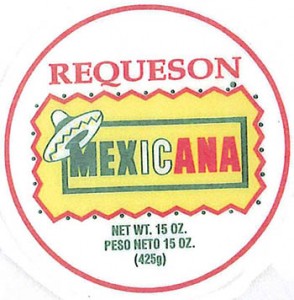Seven Hispanic families in Maryland and one in California have Listeria food poisoning lawsuits to consider in the wake of a fatal disease outbreak that was attributed by federal authorities to heavy bacterial contamination, deplorable manufacturing conditions and food safety violations at Delaware-based Roos Foods Inc.
 It’s been one month since FDA Commissioner Margaret A. Hamburg, M.D., ordered the suspension of Roos Foods’ Food Facility Registration as a result of clear findings by investigators laid out in the commissioner’s written FDA order. Soft cheeses and other dairy products made by Roos Foods and distributed in Latin stores and supermarkets on the East Coast and California killed a consumer in California and infected seven other people in Maryland, including babies.
It’s been one month since FDA Commissioner Margaret A. Hamburg, M.D., ordered the suspension of Roos Foods’ Food Facility Registration as a result of clear findings by investigators laid out in the commissioner’s written FDA order. Soft cheeses and other dairy products made by Roos Foods and distributed in Latin stores and supermarkets on the East Coast and California killed a consumer in California and infected seven other people in Maryland, including babies.
The case has stirred outrage among food safety advocates, including Listeria lawyer Fred Pritzker, who has represented familes who have suffered deaths and serious illnesses in past U.S. outbreaks involving the dangerous germ Listeria monocytogenes.
“You hope for swift justice in situations like these to relieve just a fraction of the trauma that families are experiencing,” Pritzker said. “Few cases involve such blatant disregard for safety.”
The Center for Disease Control and Prevention (CDC) has documented that the victims included two mother-newborn pairs and a separate newborn. Those CDC and FDA findings are in keeping with the danger profile of Listeria, which is known for attacking the reproductive tracts of pregnant women.
“FDA concludes that unless and until Roos has completed and implemented certain corrective actions, food manufactured, processed, packed, or held at your facility has a reasonable probability of causing serious adverse health consequences or death to humans,” Commissioner Hamburg wrote to Roos Foods President Ana Roos on March 12, 2014. The FDA has not provided any updates on its enforcement action.
FDA’s testing identified 12 swabs that tested positive for Listeria monocytogenes, which the FDA described as contamination that was widespread and persistent at the Roos plant. All but one of those swabs matched the strain of Listeria that was found in victims of the outbreak, Hamburg wrote. Recalled food included queso fresco, other soft cheeses, sour cream and other dairy products under the Mexicana and Santa Rosa de Lima brands and other trademarks.
Food safety investigators for FDA documented scores of sickening conditions inside the plant when they inspected it in mid-February. Here is a string of excerpts from those reports:
“Water was raining from the facility’s roof into the facility, including onto the cheese processing equipment and storage tanks… We observed rust colored, metal-like particles on a stainless steel table in the cheese packaging room….The water was pooling on food contact and non-food contact surfaces, including four open-top cheese curd manufacturing vats…Food residues were found on equipment after cleaning and sanitation operations had been performed, including residues from previous production runs on door handles, equipment control switches, and hand grip areas on tools and equipment.”
Pritzker said more deaths and injuries would have occurred if it weren’t for the swift work of dedicated epidemiologists and food safety investigators employed by public health agencies. About 90 percent of people who become sick from Listeria are in vulnerable groups, such as pregnant, newborn or immuno-suppressed. Listeriosis is the third-leading cause of death from foodborne illness and soft cheese, including queso fresco, is one of the foods that have been known to carry the germ when the food isn’t properly made or stored.




